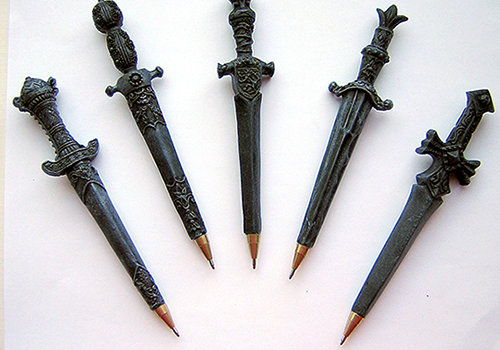Now What? Pick Your Revision Battles

You wrote a novel! Now what? NaNoWriMo’s “Now What?” Months are here—this January and February, we’ll be helping you guide your novel through the revision and publishing process. Today, Joshua Mohr, author and editor at Decant Editorial , shares why you should choose a revision focus:
Revision will be the driving force that shapes your narrative. Especially because all of our rough drafts are terrible. Even your own family members who have to like your writing will only be pretending to have enjoyed this “literary” experience; once you walk away, they’ll purse their lips and silently pity you.
But that’s okay. We were ready for the rough draft to be sloppy and incoherent at times, with characterizations oscillating all over the place and plot points contradicting one another. We anticipated rushing through some sequences and rendering others at such a glacial pace we almost nod off ourselves.
None of that matters because we know the most important detail: that our true goal with the rough draft was simply to finish it.
Now the really exciting part starts… like sculptors, we have our masses of clay and now we start to carve out the art.
First thing, the book needs to rest/steep. I let my drafts sit for two months between revisions. Get busy with something else: do your best to forget about the book for a bit. Write some short stories. Flirt with an attractive neighbor. Milk a goat. Whatever. Just stay out of the story for awhile.
A lot of novelists get frustrated during the revision process and abandon their projects. The best way that we can avoid falling into this pitfall is going into the process with a plan.
Pick your battles. Don’t try to edit every aspect of storytelling at once. Who can try and tackle plot, character, setting, imagery, etc. simultaneously? It can be overwhelming and make you want to run away from the book, pull the covers over your head, and ignore the novel for months.
One way to avoid this, then, is to pick an element of craft and focus your attentions on that. For me, I always emphasize character/ characterization in draft two. Literary fiction is always about characters, the main players; great fiction is about the connection between reader and protagonist(s). So I spend a whole draft teasing their identities to the surface.
Of course, draft two doesn’t have to be about character. That’s just what works for me. You can focus on any element of storytelling you’d like. Just make sure and narrow the avenues of intimidation, keep yourself making progress.
Don’t try to do too many things at once or you’ll get frustrated. And I don’t want that. I want you to finish your novel. I can’t wait to see what your imagination cooks up!

Joshua Mohr is the author of five novels, including Damascus, which the New York Times called “Beat-poet cool.” He teaches in the MFA program at the University of San Francisco and edits private clients’ novels through Decant Editorial. Visit him at decanteditorial.com.
Chris Baty's Blog
- Chris Baty's profile
- 63 followers



